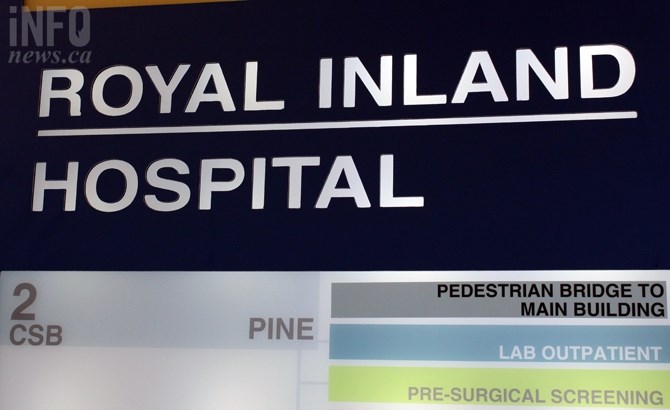
FILE PHOTO
(BRENDAN KERGIN / iNFOnews.ca)
November 27, 2022 - 8:04 AM
Vacancy rates for nurses and care aids doesn’t tell the real story about staffing shortages at Royal Inland Hospital in Kamloops.
The latest figures on the number of vacant positions at the hospital show almost 30% were unfilled in October, up from 23% in June.
READ MORE: Nursing shortages getting worse in Kamloops, Okanagan hospitals
But there are a number of workers not covered in those stats and changes in the past few weeks are starting to pay dividends, Gerry Desilets, interim executive director at the hospital told iNFOnews.ca.
“We’re not where we need to be but I think we’re on a bit of an uphill slope and finally we’re going in the right direction,” he said. “It will take some time. We’re not going to be there overnight but, listening to staff and trying the things they bring forward and giving them voice to hear what they’re saying, makes a big difference.”
When staffing shortages were making the headlines last spring, Interior Health President and CEO Susan Brown met with nurses and was told, among other things, that being frequently re-assigned to other wards was a huge factor in people wanting to work or continue working at RIH.
READ MORE: How Interior Health is planning to tackle RIH understaffing issues
Changes have now been implemented and have made a significant impact over the past six to eight weeks, Desilets said.
“What we’re really trying to do now is bring the patients up to the nurses’ home units so they will go a bit over capacity to support the patients in their area,” he explained. “Rather than moving the nurse, we’re bringing the patient to the staff.”
That means, for example, if the emergency ward is understaffed, patients will be moved to a ward or even intensive care ward rather than pull nurse from those wards and forcing them to work in emergency.
When there are shortages for shifts for registered nurses, more licenced practical nurses and/or care aids are brought in to support the RNs.
Casuals and agency workers also help fill staffing shortages but those are not included in the vacancy numbers Interior Health has provided to iNFOnews.ca.
Just because 30% of positions were listed as unfilled in October that doesn't mean the hospital ran 30% short. Some of those vacant positions were actually filled on some or all shifts, he said.
Desilets couldn’t estimate the actual percentage of unfilled shifts.
What he does know is that, since the reassignment changes were made, some casuals have returned to full-time.
The agency workers are expensive – they’re paid more than staff nurses – and come from all over the country.
They’re hired on contracts ranging from two weeks to three or four months.
“Many of the agency workers that do work for us come back regularly for multiple contracts,” Desilets said. “That does speak to the fact it’s a pretty good place to work.”
Another factor in the vacancy count is the addition of the new Gaglardi tower that opened in July.
Between that and increases in other departments, RIH has added 140 new positions since May.
Not all of those have been filled yet so the impact of increased numbers of newly posted vacant positions skews the data compared to hospitals like Kelowna General that hasn't had the same hiring spree. KGH had a vacancy rate of 13% in October.
Management continuing to listen to staff, including their concerns about parking (a new 140-150 lot space will open early next year) should bring continued improvements, Desilets said.
To contact a reporter for this story, email Rob Munro or call 250-808-0143 or email the editor. You can also submit photos, videos or news tips to the newsroom and be entered to win a monthly prize draw.
We welcome your comments and opinions on our stories but play nice. We won't censor or delete comments unless they contain off-topic statements or links, unnecessary vulgarity, false facts, spam or obviously fake profiles. If you have any concerns about what you see in comments, email the editor in the link above.
News from © iNFOnews, 2022